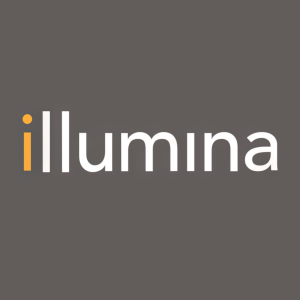Trailblazing Study Shows Early CGP Leads to Better Precision Treatments
Rhea-AI Summary
A comprehensive study by Illumina, Providence, and Microsoft Research demonstrates that a 523-gene comprehensive genomic profiling (CGP) panel significantly improves cancer treatment outcomes. The study, published in the Journal of Clinical Oncology - Oncology Practice, analyzed 3,216 patients with advanced cancers. Key findings show that 67% of tumors contained actionable mutations using CGP, compared to 33% with a 50-gene panel. Patients receiving precision therapy based on CGP results showed median survival of 25 months versus 17 months for those on chemotherapy alone. The panel identified actionable variations in 52% of patients, qualifying them for targeted or immune therapy.
Positive
- CGP panel identified actionable mutations in 67% of tumors vs 33% for smaller panels
- Patients receiving precision therapy showed 8-month longer median survival (25 vs 17 months)
- 52% of CGP-tested patients qualified for targeted or immune therapy
- Study demonstrated clear clinical benefit of comprehensive genomic testing
Negative
- 88% of patients had metastatic disease
- 40% of study participants entered hospice
- effectiveness for some cancer types
News Market Reaction 1 Alert
On the day this news was published, ILMN gained 2.30%, reflecting a moderate positive market reaction.
Data tracked by StockTitan Argus on the day of publication.
NORTHAMPTON, MA / ACCESSWIRE / November 22, 2024 / Illumina
A 523-gene oncology panel identifies actionable tumor variations and improves outcomes
Originally published on Illumina News Center
A large, multiyear study conducted by Illumina, Providence, and Microsoft Research has shown that a comprehensive genomic profiling (CGP) panel, which can assess more than 500 genetic variations in tumors, is a powerful tool to direct patients to the most advanced precision therapies that improve overall survival. The study was published in the Journal of Clinical Oncology - Oncology Practice and will be presented at the Association for Molecular Pathology (AMP) 2024 meeting in Vancouver, British Columbia.
"With the comprehensive panel, we found that about half of our patients had at least one high-tier, actionable alteration, qualifying them for a precision therapy," says Brian Piening, PhD, director of Clinical Genomics at Providence, research faculty at the Earle A. Chiles Research Institute, and senior author on the paper. "Also, over half of our patients had a biomarker that would qualify them for a clinical trial. These are pretty striking results."
The evolution of genetic testing
Cancers are genetic diseases, in which genomic and chromosomal variations drive rampant cell growth. Over the past 30 years, clinicians have adopted increasingly sophisticated tests to identify these alterations and, when supported by evidence, refer patients to more effective therapies.
Early efforts were encouraging, but lacked breadth, often sequencing 50 or fewer genes and missing important tumor information. CGP provides a broader view of the diagnostic, prognostic, and predictive genetic variants underlying a patient's cancer.
Knowing a tumor's genomic blueprint can guide precision treatment. In many cases, if a mutated enzyme is causing uncontrolled cell growth, a targeted therapy can slow it down or stop it entirely. Immunotherapies harness a patient's own immune system to recognize and destroy tumors. These and other emerging treatments can dramatically improve patient outcomes-but first, clinicians must understand the genetic anomalies driving their tumors.
Streamlining protocol for CGP
The joint paper details the first two years of a five-year study to assess ProvSeq, a 523-gene panel used to test 3216 patients with advanced cancers (Stage III or IV). The team wanted to know if this comprehensive approach would identify more actionable anomalies than smaller genomic panels, and whether use of advanced therapies targeting those anomalies prolonged patient survival.
To remove insurance reimbursement from the equation, the researchers provided these tests at no cost. They also refined how CGP was ordered, to deliver the results faster and better influence care.
"We instituted a protocol where the test would be initiated when a pathologist diagnosed advanced cancer," Piening says. "Normally, oncologists ordered these, but we felt shifting it to pathologists would streamline the process. Having pathologists order CGP up front really brings it to the top of the list."
Using an approach developed by Microsoft Research collaborators and based on natural language processing, Providence clinical researchers were able to quickly and efficiently parse large sets of publications, clinical trials, and electronic health records. These AI capabilities assisted Providence researchers with genomics interpretation and clinical trial matching in the molecular tumor boards.
Robust results
The team ran simulations to compare ProvSeq's performance against that of a 50-gene panel on the same data. Unsurprisingly, the smaller panel failed to detect many actionable biomarkers.
The most common tumors found were lung, colon, breast and prostate. Around
In addition,
These raw statistics had real-world consequences. Because CGP identified actionable mutations in people with serious and possibly deadly tumors, those patients received the most precise treatments.
"A number of the participants had quite advanced, aggressive cancers," Piening says. "One patient was in hospice, and we found a highly targetable biomarker. The patient soon received the precision therapy and the response was remarkable. In a short time, they came off hospice and went back to work."
The research continues
In addition to the main paper, the team is also presenting two related posters at the AMP meeting. One showed that another genomic diagnostic could help determine whether ovarian cancer patients would respond to PARP inhibitors, which have shown some success against this challenging disease.
The team is also presenting on a subset of patients who had structural genomic variations called gene fusions. Some of these fusions were already well known but the scientists found several novel combinations, highlighting CGP's ability to detect unique genetic anomalies.
These findings are pieces of a much larger puzzle. The complete five-year study tested more than 10,000 patients, and researchers are waiting to learn more about their outcomes. This larger cohort could provide additional information about patients with relatively rare cancers.
The results are a positive step in CGP's clinical journey. Piening and his colleagues expect CGP-fueled patient outcomes to improve over time, as more targeted and immune therapies enter the clinic.
"We see new approvals all the time and that bodes well for the future," Piening says. "There's a lot of work to do, but those numbers will continue to climb. Ultimately, we'd like to be in a position where every patient has an available precision therapy option."

Photo: Brian Piening, PhD, director of Clinical Genomics at Providence | Photo courtesy of Providence
View additional multimedia and more ESG storytelling from Illumina on 3blmedia.com.
Contact Info:
Spokesperson: Illumina
Website: https://www.3blmedia.com/profiles/illumina
Email: info@3blmedia.com
SOURCE: Illumina
View the original press release on accesswire.com








